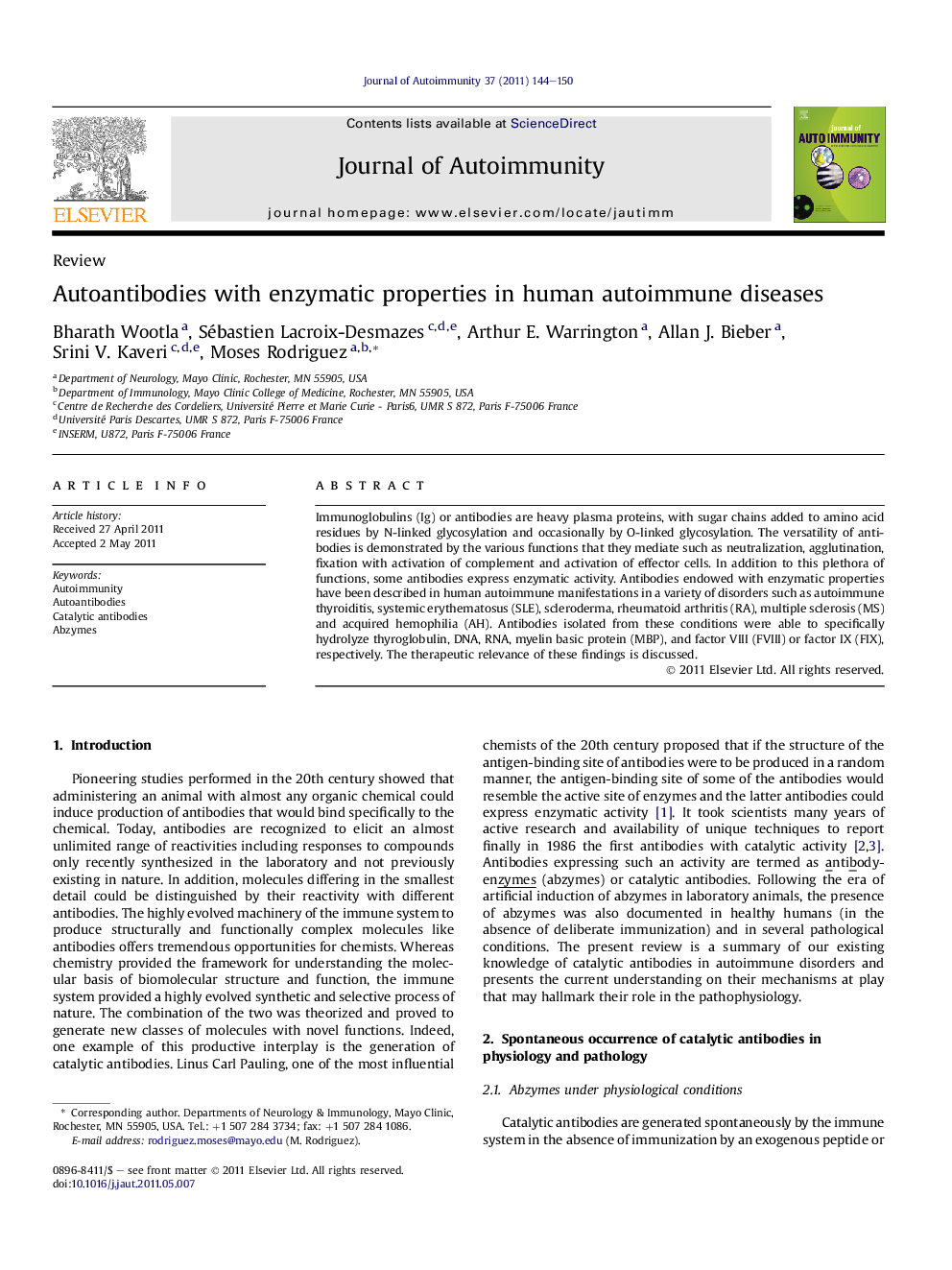| Article ID | Journal | Published Year | Pages | File Type |
|---|---|---|---|---|
| 3367973 | Journal of Autoimmunity | 2011 | 7 Pages |
Immunoglobulins (Ig) or antibodies are heavy plasma proteins, with sugar chains added to amino acid residues by N-linked glycosylation and occasionally by O-linked glycosylation. The versatility of antibodies is demonstrated by the various functions that they mediate such as neutralization, agglutination, fixation with activation of complement and activation of effector cells. In addition to this plethora of functions, some antibodies express enzymatic activity. Antibodies endowed with enzymatic properties have been described in human autoimmune manifestations in a variety of disorders such as autoimmune thyroiditis, systemic erythematosus (SLE), scleroderma, rheumatoid arthritis (RA), multiple sclerosis (MS) and acquired hemophilia (AH). Antibodies isolated from these conditions were able to specifically hydrolyze thyroglobulin, DNA, RNA, myelin basic protein (MBP), and factor VIII (FVIII) or factor IX (FIX), respectively. The therapeutic relevance of these findings is discussed.
